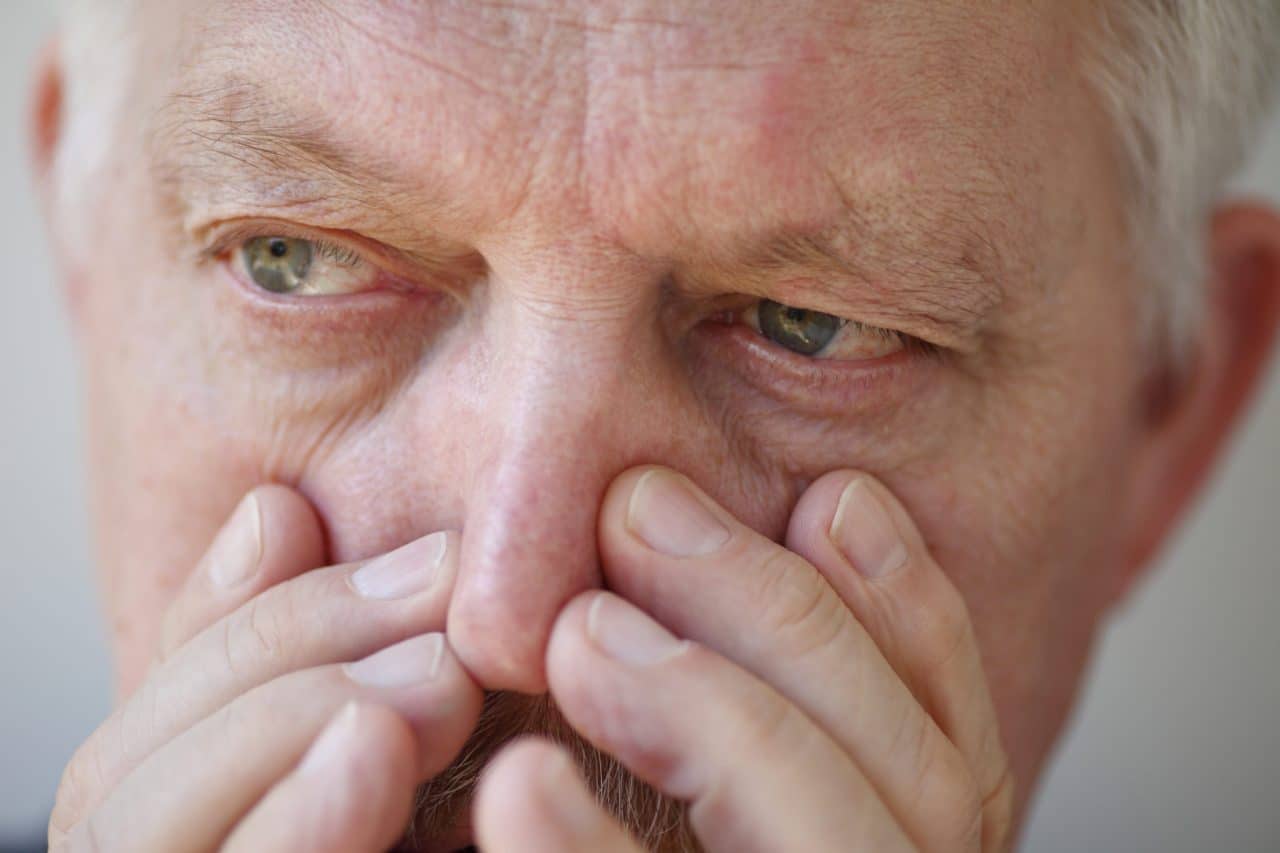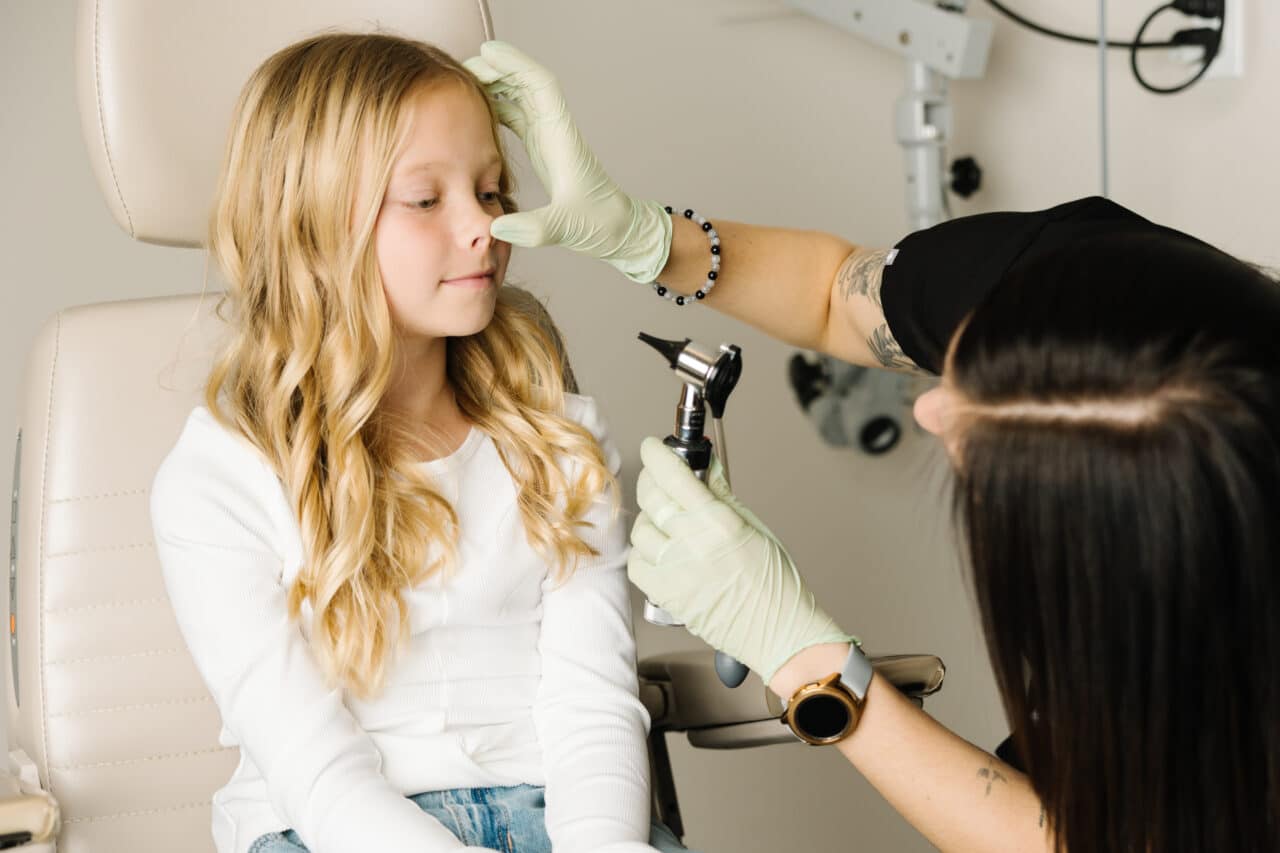Though common and sometimes frightening, nosebleeds are rarely anything more than a nuisance. They are usually the result of minor irritations in the nasal passages and most common in children younger than 10, or adults older than 50.
What Causes Nosebleeds?

When the membranes lining the inside of the nose dry out and become irritated, the blood vessels break, causing a nosebleed. These are more common in the winter months when the air is cold and dry. Other factors that may contribute to nosebleeds include the use of blood thinners, colds and allergies, sinus infections, nose-picking, blowing the nose too hard, frequent sneezing, overuse of nasal sprays, foreign objects in the nose and trauma to the nose.
If nosebleeds are chronic or occur frequently, they may result from high blood pressure or other vascular diseases or, in rare cases, a serious medical condition such as a tumor.
Most nosebleeds are anterior, which originate in the front of the nose. These are easy to control and rarely pose a serious problem.
Posterior nosebleeds are rare, but are sometimes much more serious. They originate from an artery in the back of the nose, and may require immediate hospitalization and treatment. These are most common in the elderly.
What are the causes of recurring nosebleeds?

- Allergies, infections, or dryness that cause itching and lead to picking of the nose.
- Vigorous nose-blowing that ruptures superficial blood vessels.
- Clotting disorders that run in families or are due to medications.
- Drugs (such as anticoagulants or anti-inflammatories).
- Fractures of the nose or the base of the skull. Head injuries that cause nosebleeds should be regarded seriously.
- Hereditary hemorrhagic telangiectasia, a disorder involving a blood vessel growth similar to a birthmark in the back of the nose.
- Tumors, both malignant and nonmalignant, have to be considered, particularly in the older patient or in smokers.
Tips to prevent a nosebleed
- Keep the lining of the nose moist by gently applying a light coating of petroleum jelly or an antibiotic ointment with a cotton swab three times daily, including at bedtime. Commonly used products include Bacitracin, A and D Ointment, Eucerin, Polysporin, and Vaseline.
- Keep children’s fingernails short to discourage nose-picking.
- Counteract the effects of dry air by using a humidifier.
- Use a saline nasal spray to moisten dry nasal membranes.
- Quit smoking. Smoking dries out the nose and irritates it.
Tips to prevent rebleeding after initial bleeding has stopped
- Do not pick or blow nose.
- Do not strain or bend down to lift anything heavy.
- Keep head higher than the heart.
If rebleeding occurs:
- Attempt to clear nose of all blood clots.
- Spray nose four times in the bleeding nostril(s) with a decongestant spray.
- Repeat the steps to stop an anterior nosebleed.
- Call a provider if bleeding persists after 30 minutes or if nosebleed occurs after an injury to the head.
Treatment
If you experience a nosebleed, stay calm! Though your nosebleed may look serious, chances are there is much less blood than you might think. Sit down and lean forward slightly while pinching your nostrils together using a thumb and index finger. Hold this position for at least five minutes or until the bleeding has stopped.
Other strategies that can help control a nosebleed include using a decongestant spray like Afrin (oxymetazoline) or putting an icepack on the bridge of your nose.
Once the bleeding has stopped, refrain from blowing your nose afterward. If the bleeding hasn’t stopped after 20 minutes or is the result of an injury to the face, seek medical attention.
There are several strategies that providers can use to control nose bleeds. In addition to the ones already described, cautery and many specialized packings can be used. In rare cases, surgery or embolization may be necessary.
If you are prone to frequent nosebleeds, there are steps you can take to prevent them. Keep the nasal lining moist with a saline nasal spray or saline gel. Run a humidifier, especially if you live in a dry climate. Quit smoking; this causes dryness and irritation.
You may want to consult an otolaryngologist if recurring nosebleeds are a problem.
Call Dubuque ENT at (563) 588-0506 for more information or to schedule an appointment.